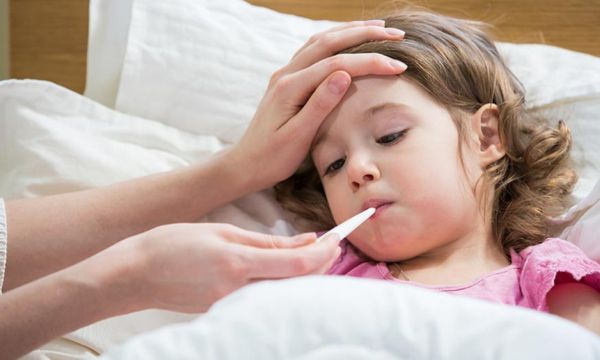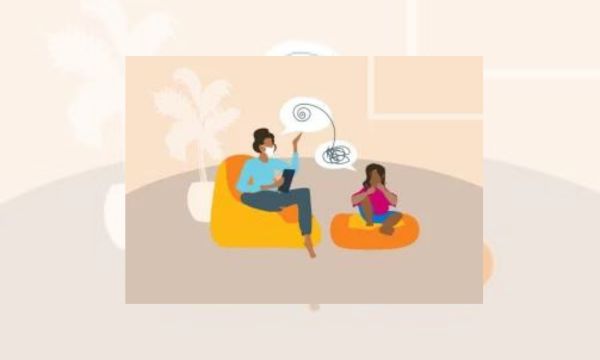Managing Childhood Anxiety: A Guide for Parents
In today’s fast-paced world, anxiety in children is an increasing problem. Many children experience feelings of worry, anxiety, and unease that can affect their daily lives. As parents, caregivers, and educators, it is necessary to recognize the signs of anxiety in children and learn how to deal with them effectively. In this article, we explore different strategies and techniques to help you support your child in managing their anxiety.
Ad
Understanding Anxiety in Children
Anxiety is a natural response to stress, and children experience it from time to time. However, when the anxiety becomes excessive and persistent, it can hinder a child’s health and development. Common signs of anxiety in children include:
- Excessive worry: Children with anxiety disorders may worry excessively about many things, such as school performance, social situations, and even daily activities.
- Physical symptoms: Anxiety can manifest as physical symptoms such as headaches, stomach aches, or muscle tension.
- Avoidance: Children may avoid situations or places that cause anxiety, leading to isolation and missing out on valuable experiences.
- Sleep disorders: Anxiety can disrupt your child’s sleep patterns, making it difficult to fall asleep or causing frequent nightmares.
- Irritability: Anxious children may become easily irritable or have frequent outbursts.
Tips for Dealing with Anxiety in Children
- Open communication: Encourage your child to talk about their feelings and fears. Create a safe and non-judgmental environment in which they can express themselves.
- Validate emotions: Let your child know that it is normal to feel anxious sometimes. Validate their emotions and reassure them that you have their back.
- Teach relaxation techniques: Teach your child simple relaxation techniques, such as deep breathing exercises or progressive muscle relaxation, to help him calm down during anxious moments.
- Establish a routine: Consistency can give anxious children a sense of security. Create a regular routine with time for homework, play, and relaxation.
- Limit exposure to stressors: Identify and minimize stressors that cause your child’s anxiety. This may include reducing screen time, avoiding overscheduling, or addressing academic stress.
- Encourage physical activity: Regular physical activity can help reduce anxiety by releasing endorphins (the body’s natural stress relievers).
- Mindfulness and meditation: Introduce your children to mindfulness and meditation techniques. These practices can help them stay grounded in the present and reduce anxiety about the past or future.
- Encourage social connections: Support your child in creating and maintaining positive social connections. Spending time with friends and family can provide emotional support and create a sense of connection.
- Art and creative expression: Encourage creative expression such as drawing, painting, writing or playing music. Creative expression can be an effective way for children to process and release their emotions.
- Healthy Lifestyle Habits: Promote a healthy lifestyle by making sure your child gets enough sleep, balanced meals, and regular exercise. A well-nourished body can handle stress and anxiety better.
- Set realistic goals: Help your child set achievable goals, both academically and personally. Breaking larger tasks into smaller, manageable steps can reduce feelings of being overwhelmed.
Be a Role Model
Children often learn by observing the behavior of the adults around them. As a parent or caregiver, it is important to develop healthy coping mechanisms to deal with stress and anxiety. By showing you how to manage your own stress in a positive way, you can give your child valuable tools to deal with his or her own fears.
Seek Professional Help when Necessary
Although many children can learn to cope with anxiety with the support of family and caregivers, some may need professional help. If your child’s anxiety continues to significantly interfere with daily life or worsens over time, consider seeing a child psychologist or therapist. These professionals can provide specialized interventions and strategies based on your child’s unique needs.
Conclusion
Managing anxiety in children is a collaborative effort between parents, caregivers, educators, and mental health professionals. By promoting open communication, teaching coping strategies, and creating a supportive environment, you can help your child develop resilience and cope with anxiety with confidence.
Remember that every child is unique and what works for one child may not work for another. It is crucial to be patient, understanding, and adaptable in your approach. With your continued support and guidance, your child can learn to cope with the challenges of anxiety and grow into a confident, emotionally resilient person.
If you have any questions or would like more information about dealing with anxiety in children, please feel free to contact us. We are here to provide you with tools and guidance to help your child thrive. Together we can make a positive difference in the lives of children struggling with anxiety and build a better future for them.
FAQs
1. What causes anxiety in children?
Anxiety in children can be caused by a variety of factors, including genetics, brain chemistry, personality, and life experiences. It is important to remember that anxiety is a normal response to stress, but if it becomes excessive and persistent it may indicate an anxiety disorder.
2. How do you determine whether a child has an anxiety disorder?
Anxiety symptoms in children can vary from child to child, but common indicators include excessive worry, physical symptoms such as headaches or stomachaches, avoidance of certain situations, sleep disturbances, and irritability. If you suspect that your child has an anxiety disorder, it is best to consult a doctor or therapist for a proper evaluation.
3. What can I do to help my child cope with anxiety at home?
Supporting your child at home includes creating a safe and nurturing environment, encouraging open communication, teaching relaxation techniques, and promoting a healthy lifestyle. It is also crucial to provide emotional support and be a good role model for dealing with stress.
4. Are there books or resources that can help children understand and cope with anxiety?
Yes, there are many resources available to help children understand and cope with anxiety. Some popular books include The Anxiety Handbook for Kids by Robin Alter and What to Do When You Worry Too Much: A Child’s Guide to Overcoming Anxiety by Dawn Huebner. In addition, there are several apps and online programs designed to teach children relaxation and mindfulness techniques.
5. When should I seek professional help for my child’s anxiety?
If your child’s anxiety significantly affects daily life, interferes with their ability to attend school or participate in social activities, or causes significant distress, it is advisable to consult a mental health professional. They can make an accurate diagnosis and recommend appropriate interventions, such as therapy or counseling.
 Ensuring the Well-being of the Future: Children’s Health Matters
Ensuring the Well-being of the Future: Children’s Health Matters
In today’s fast-paced world, it’s easy to overlook the importance of children’s health. With countless distractions and […]
More Dealing with Cold and Flu in Children: A Parent’s Guide
Dealing with Cold and Flu in Children: A Parent’s Guide
As a parent, seeing your child get sick is a common concern, especially when it comes to […]
More Choosing the Right Therapy for Your Child
Choosing the Right Therapy for Your Child
An important aspect to consider when it comes to ensuring your child’s health and development is treatment. […]
More